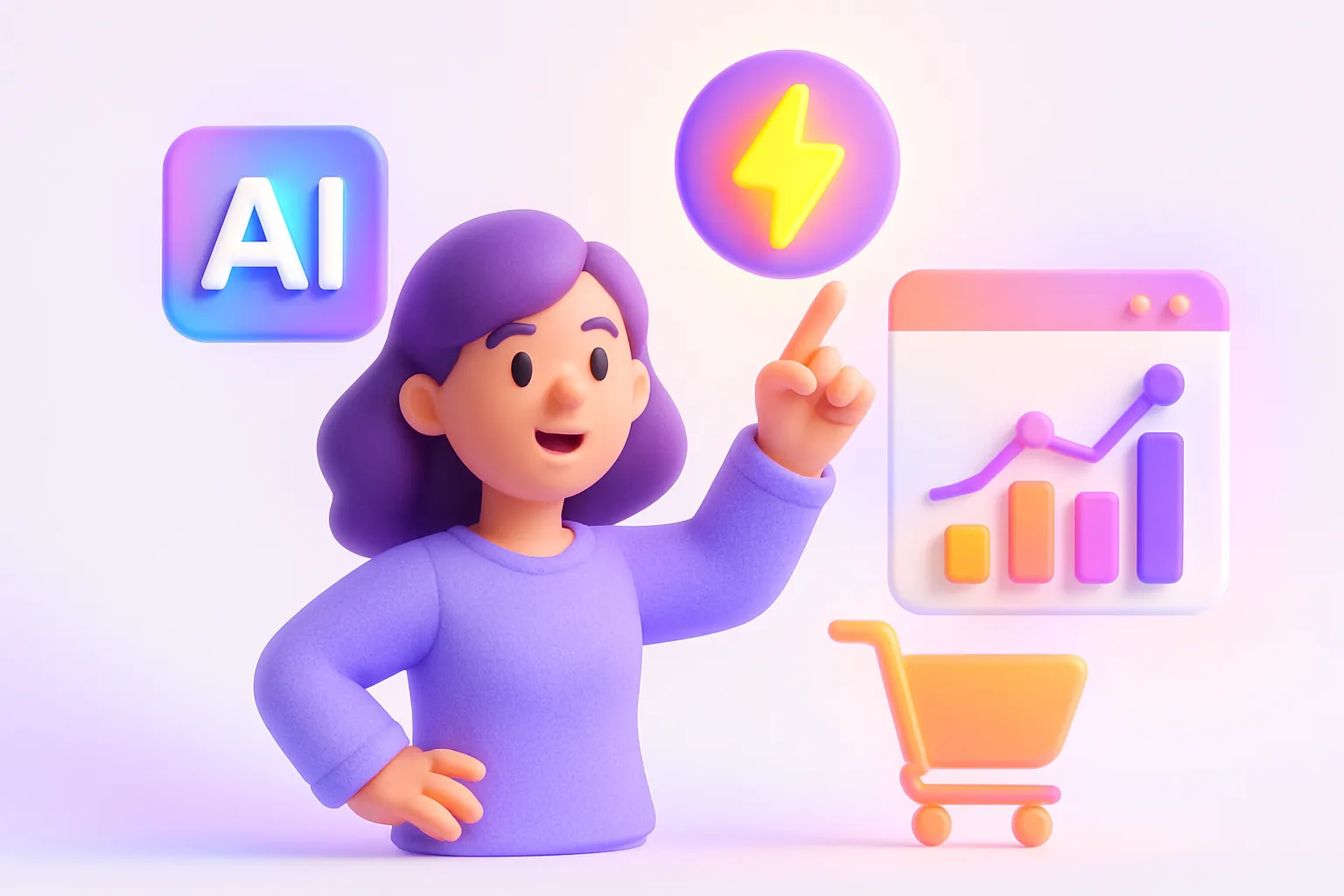AI-Powered Marketing Automation in E-Commerce

AI-Powered Marketing Automation in E-Commerce: How to Work Smarter and Sell More
Why This Matters Right Now
Shoppers expect brands to know what they need before they click “add to cart.” According to recent research, 72% of consumers only engage with messages that feel personal. AI makes that level of relevance possible at scale, turning raw data into campaigns that feel one-to-one.
Introduction to AI in Marketing
Artificial intelligence has moved from the lab to the marketing stack. Machine-learning models analyze browsing history, purchase patterns, and even the weather to predict what each visitor wants. Instead of blasting the same offer to thousands, AI lets e-commerce teams deliver the right product, price, and message for every shopper.
Benefits of AI Automation
- Higher conversion rates: Brands that switched to AI-driven automation saw a 30% lift in conversions within six months source.
- Lower acquisition costs: The same study reported a 25% drop in customer acquisition cost.
- Team efficiency: Tasks that once took hours, like segmenting audiences, now run in minutes, freeing marketers to focus on creative strategy.
Personalized Campaigns
Forget “Hi {{first_name}}.” True personalization adjusts product recommendations, discount thresholds, and even email send times for each person. Brands using AI-driven personalization have reported up to a 20% jump in sales and stronger customer lifetime value source.
Quick Wins
- Use predictive models to surface “next-best” products on product pages.
- Tailor home-page banners to the visitor’s browsing history.
- Dynamically adjust email product grids based on real-time inventory.
Behavior-Triggered Campaigns
AI monitors every click and scroll, then fires the right message at the perfect moment. If a visitor abandons a cart, the system can run a price-drop alert, add social proof, or offer same-day shipping, whatever historical data shows will close the sale. Stores using behavior triggers recapture a significant share of abandoned carts and nudge fence-sitters to buy source.
Cross-Channel Consistency
Customers bounce between email, social ads, SMS, and your site within minutes. AI keeps the story straight. A multinational tech brand used AI to align copy and offers across every channel, boosting brand recall by 40% and lifting cross-platform engagement source.
Real-Time Engagement
Speed matters. AI-powered chatbots and recommendation engines respond the instant a shopper hesitates. Whether it’s answering product questions or suggesting a size, these real-time nudges make visitors feel heard and shorten the path to purchase source.
Case Studies
- Amazon: Machine-learning algorithms personalize recommendations and dynamic pricing, fueling both revenue and customer satisfaction source.
- Mid-market fashion retailer: After rolling out AI-driven email triggers, the brand cut its promotional calendar by 40% while increasing revenue per send.
- Direct-to-consumer home goods shop: Chatbot-led product quizzes lifted average order value by 15% in three months.
Implementing AI Tools
Success starts with clear goals and clean data. SMEs that introduced AI tools reported a 40% jump in engagement and a 300% ROI source. Follow this roadmap:
- Audit your data: Consolidate customer, product, and channel data into one source of truth.
- Prioritize use cases: Begin with a high-impact area such as cart-abandonment flows.
- Integrate and iterate: Connect the AI tool to your ESP, ad platform, or CMS, then test and refine weekly.
Future Trends in AI Marketing
- Voice search optimization: As smart speakers grow, expect campaigns tuned for spoken queries.
- Augmented reality try-ons: AI will blend product data with AR to let shoppers “see” items at home.
- Autonomous campaign management: Systems will soon set budgets, choose creatives, and optimize in real time source.
Related Reading From Our Library
Need a deeper dive into tailoring every touchpoint? Check out AI-Driven Personalization Strategies for E-Commerce Success. It explores recommendation engines, AI chat, and logistics, perfect next steps once your marketing automation is humming.
Final Takeaway
AI marketing automation isn’t a silver bullet, but it is the fastest way for e-commerce teams to act on data, personalize at scale, and stay ahead of shopper expectations. Start with one high-leverage workflow, measure the impact, and expand. The stores that build an AI habit today will shape how customers shop tomorrow.



